US election 2020: Candidates and voters waiting on final states
- Published
- comments
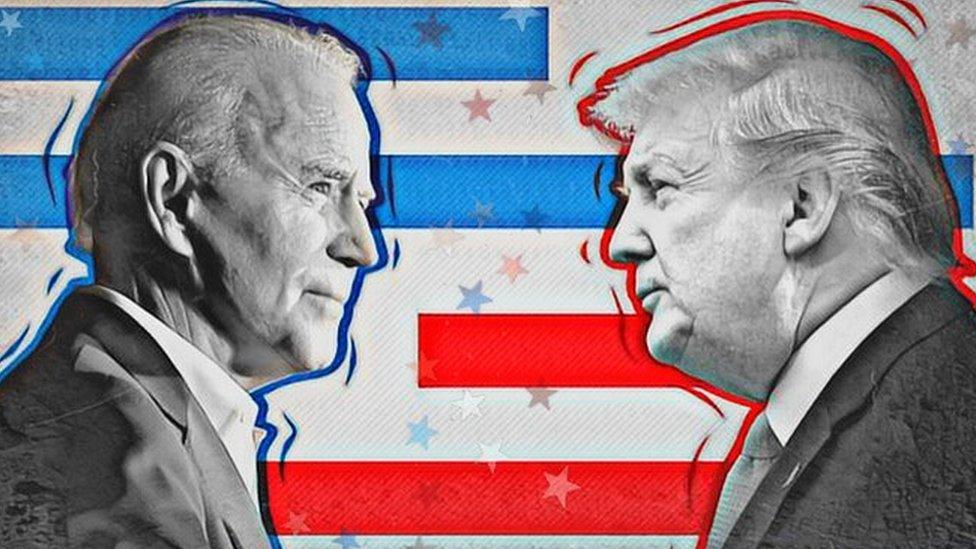
American voters are still waiting for the final result of Tuesday's Presidential election.
Millions of Americans cast their votes for the two main candidates, Donald Trump and Joe Biden, but the focus is now on those counting the ballots.
Biden currently has 253 electoral college votes, and Trump 214. They need 270 to win the White House.
Joe Biden is projected to win in the key swing states of Michigan and Wisconsin - that means the BBC expects he is very likely to win there once all the votes have been counted. But the count continues in five other states which could choose either candidate.
The numbers are still so tight, with both candidates enjoying huge support across the country, that we won't have a clear result until almost every vote has been counted, then double checked.
Mr Trump is mounting a legal challenges in Pennsylvania, Wisconsin, Michigan, Georgia and Nevada and has claimed, without evidence, there is voter fraud. His Democratic challenger Joe Biden has appealed for calm and patience while also claiming that he is on track to win.
So, what has happened so far? We've got it covered.
What are the candidates saying?
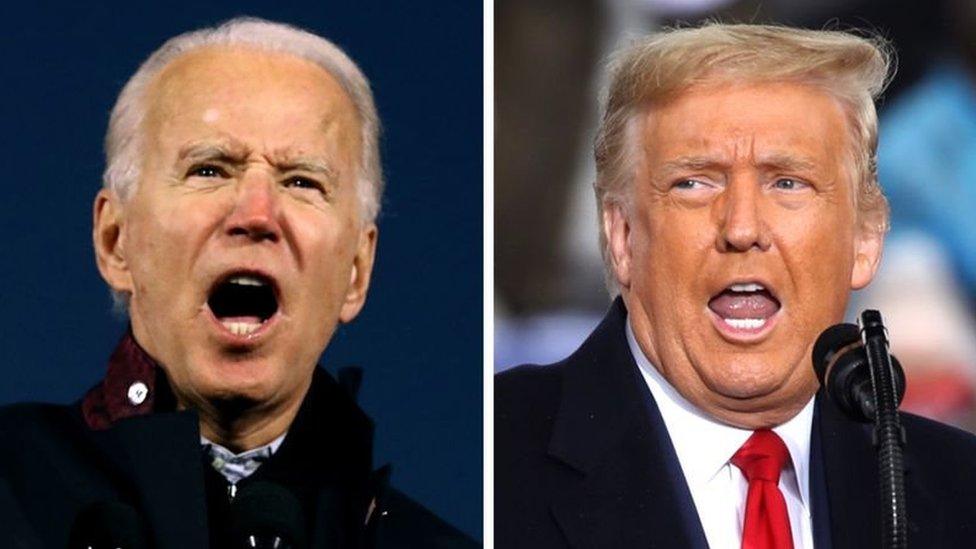
There have been strong words from both of the candidates, with Mr Biden saying he thinks he'll win and Mr Trump claiming he has already won - despite the fact that no result has been declared.
On the evening of Friday 6 November, Joe Biden appeared to take the lead in the remaining states and made a speech where he didn't claim to win but said it was clear, and he was confident, that he is going to.
He talked about the vast number of votes he and his running partner, Kamala Harris, had received - over 70 million - the most ever cast for a Presidential candidate.
Jo Biden says 'We're going to win'
Donald Trump, though. after saying he would win straight away has been increasingly complaining about the fairness of the election and accusing his opponents of trying to "steal the election".
He called the election "an embarrassment to the country" and "a major fraud on the nation".
In a tweet - which Twitter added a warning to about false information - Mr Trump said he was trying suing over vote counts in the key states of Wisconsin, Pennsylvania, Michigan, Georgia and Nevada. This means he wants to legally challenge the vote counts in these states.
However, this has brought a lot of criticism as there is no evidence of any election fraud and many experts feel he is undermining the whole election process.
What happens next?
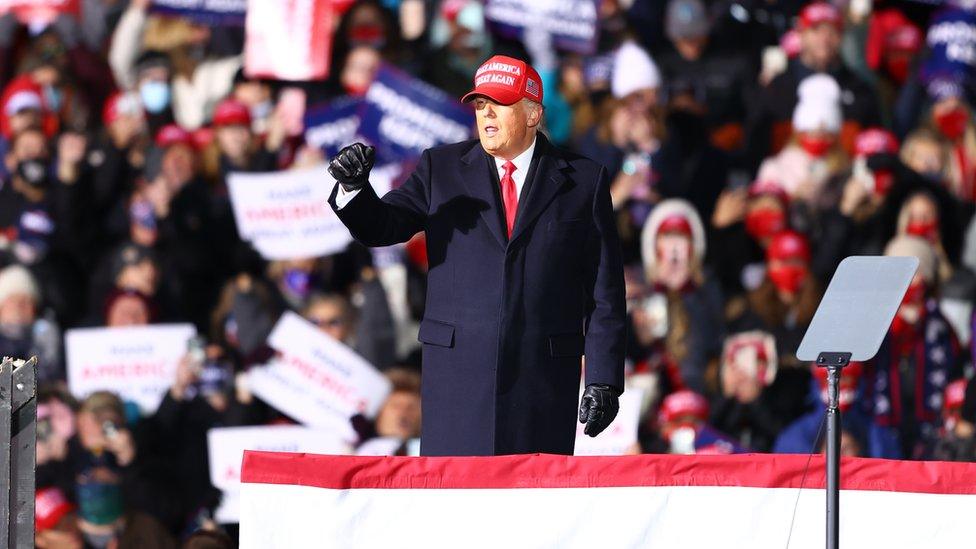
States will continue counting, but there is still no final result yet.
But it's not just about counting votes - now there are legal challenges to the results, there could be an even longer wait.
No matter what happens, Mr Trump is still president until 20 January 2021 - that's the presidential inauguration day, which is a ceremony to mark the start of the next four-year-long presidential term.
How have we got to this point?
WATCH: US Election: The story of the night
On election night, results poured in from across the US but all focus is now on a selection of key states that are still counting their results - including, Arizona, Georgia, Nevada, North Carolina and Pennsylvania. The votes in those states are all close, and in several cases include large numbers of postal ballots.
The counts are so close, few people are feeling confident enough to predict the results until all the votes are in.
Georgia is so close it is already going to a re-count, where the counters have to start all over again!
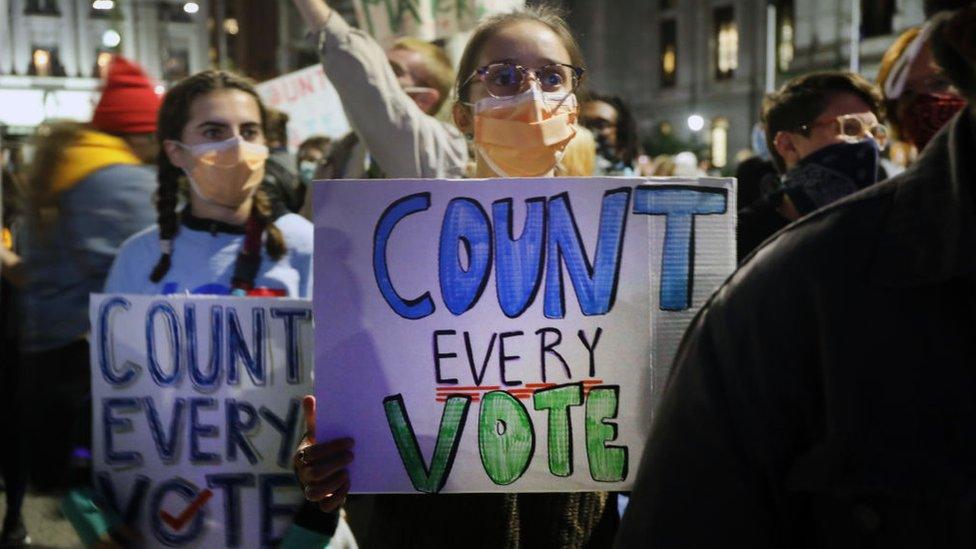
People have been protesting in Philadelphia, Pennsylvania, in support of counting all votes
Protests
There have been protests by both sides in major cities over the vote counting. In Detroit, Michigan and in Philadelphia, Pennsylvania, Democrats gathered at vote counting centres carrying signs and chanting "count my vote".
Trump supporters have also protested at vote centres in the states of Arizona, Georgia and Nevada. Groups demanded that the count stop because they - like Mr Trump - feel there has been voter fraud and the mail-in ballots cannot be trusted, although there is no evidence of this.
Officials say they are accurately counting each ballot.

President Donald Trump supporters protest outside the Clark County Election Department in North Las Vegas, Nevada, where ballots from the election are being counted
How do people's votes end up choosing the president?
The candidates need 270 Electoral College votes to become president.
Americans living in each state vote for people called 'electors' who support the candidate they want to be president, in this case either Joe Biden or Donald Trump.
The more people who live in a state, means the more electors that state has. So California, which has lots of people living there, has 55 votes. While Alaska, where there aren't as many people, has just three votes.
In total, there are 538 votes across the 50 states and the capital, Washington DC.
The candidate with the most electors on his or her side wins all of the state's electoral college votes, in most cases.
Why is it taking so long?
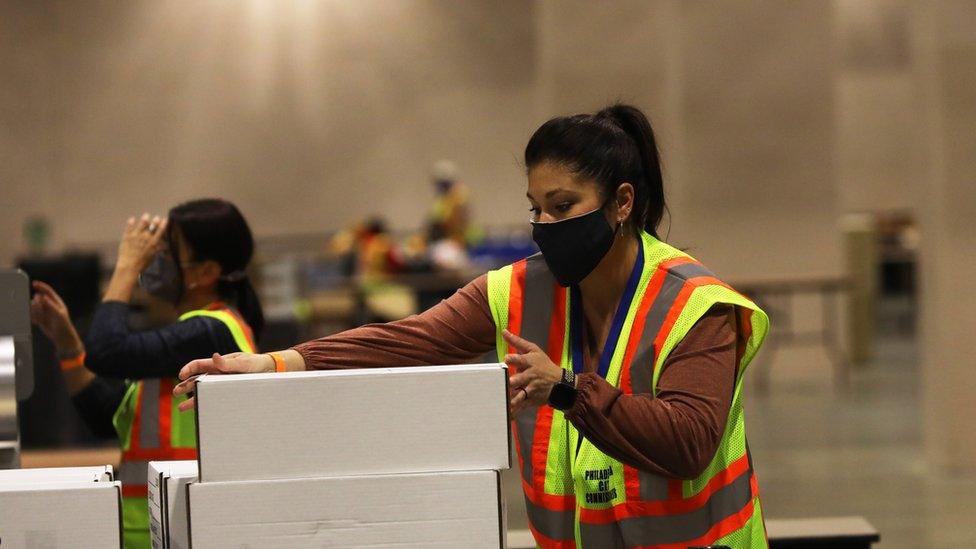
Election workers counting votes in Philadelphia, Pennsylvania - a key state that could vote either way
Usually the result would be announced the day after the election and by now we'd know who has won.
However, things are different this year.
A record number - more than 100 million people in a population of 328m - decided to do a postal vote. It means they submitted their choice before election day via the post, instead of voting in person on 3 November.
Many people thought it would be safer to vote this way, and avoid others at polling stations, due to the coronavirus pandemic.
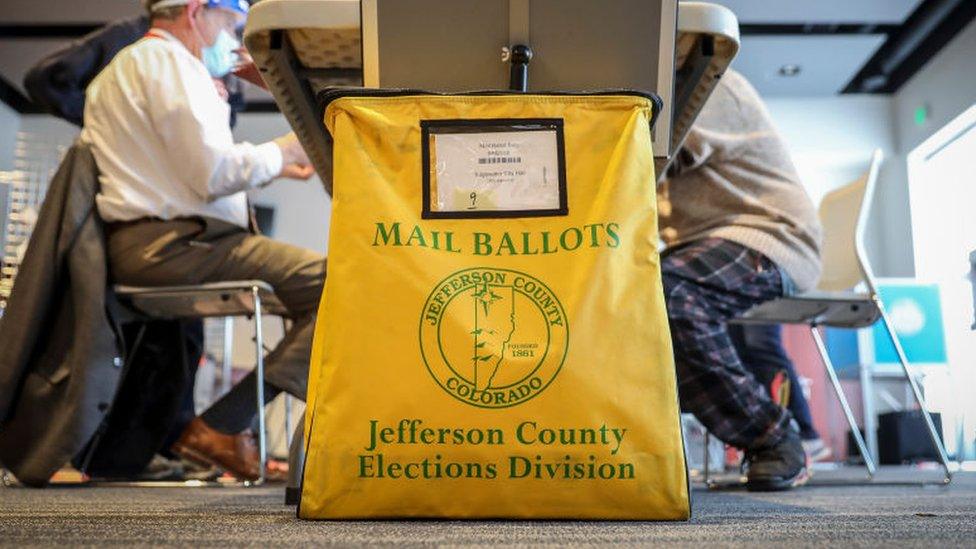
A record breaking number of people voted via post
A lot of states are not used to counting this many postal votes, and different states have different rules about how and when to count them, meaning there will be large gaps between them in terms of reporting results.
In Pennsylvania, for example, they are not allowed to begin counting mail-in ballots until the day of the election itself.
In some states it will take weeks to get complete results.
- Published3 November 2020

- Published3 November 2020
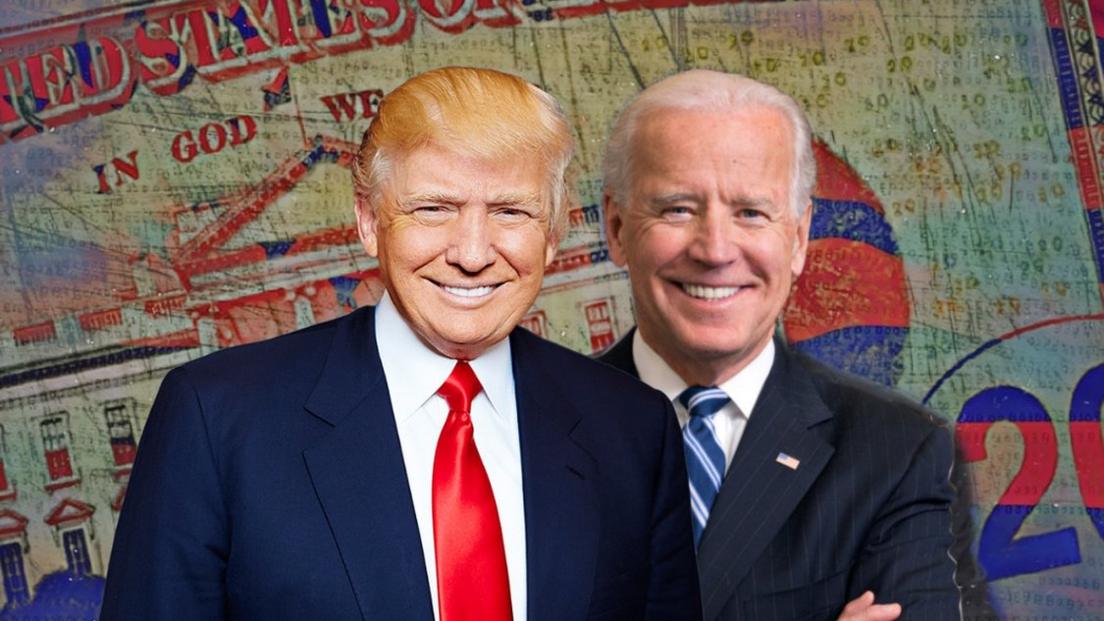
- Published16 October 2020

